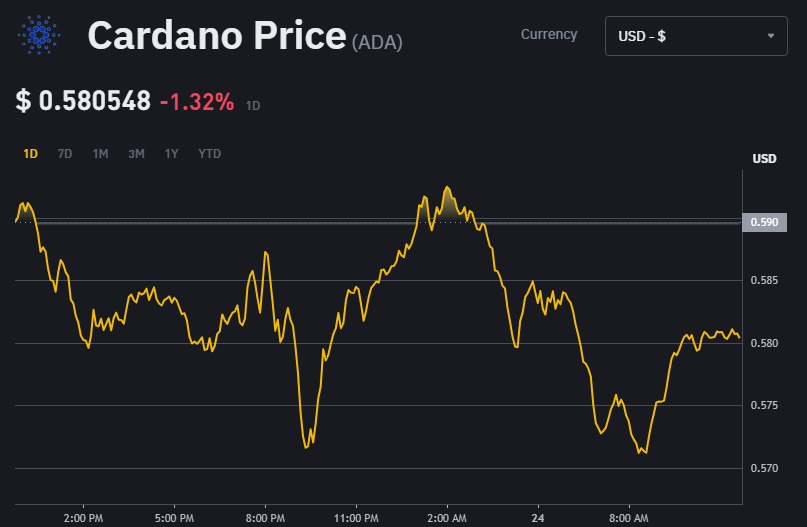-
Charles Hoskinson, the founder of Cardano, expressed support for the X community’s efforts to refute the ECB’s allegations against Bitcoin.
- The X community weaponized the same Chainalysis report that the ECB cited.
- The European Central Bank (ECB) voiced grave concerns about Bitcoin and mistrusted the most recent ETF approval.
The founder of Cardano, Charles Hoskinson, has expressed his support for the X community’s valiant defence of Bitcoin (BTC) against the European Central Bank’s (ECB) ongoing scepticism. The ECB was retaliated against by the X community, which said that Bitcoin was too expensive and had been used in illegal transactions.
The X Community and Cardano Founder Strike Back In ECB
Hoskinson said, “Community notes just murdered the ECB,” citing the information provided via the X community notes feature on the ECB’s post. The ECB’s accusations against Bitcoin have suffered a severe setback due to the X community’s rebuttal, which uses data from the same Chainalysis report that it cited.
The Chainalysis report highlighted that illegal activity accounted for only 0.34% of cryptocurrency transactions in 2023. Bitcoin had a significantly lower percentage of illicit activity at 25% compared to other cryptocurrencies. Additionally, the report noted that €100 billion, or 1% of the EU’s GDP, involved illegal transactions with Euro (EUR) in 2010.
This defence is timely because the European Central Bank (ECB) is still sceptical despite recent positive developments in the United States, like the Securities and Exchange Commission’s (SEC) approval of Bitcoin ETFs. The ECB emphasized the widespread use of Bitcoin in money laundering, citing the Chainalysis 2024 report.
Illicit addresses transferred $23.8 billion in cryptocurrency in 2022, marking a 68.6% increase. Cryptocurrency exchanges laundered nearly half of these funds despite regulatory compliance.
What Charges Against Bitcoin Did The ECB Make?
Even though European regulators had just approved ETFs, they had expressed scepticism about Bitcoin. Despite the ETF’s approval, the ECB reaffirmed its concerns in their most recent report, highlighting Bitcoin’s drawbacks as an investment and digital currency.
Those hoping that the launch of the Spot Bitcoin ETF would lead to a change in public opinion were disappointed by this position. The ECB emphasized Bitcoin’s susceptibility to fraud and manipulation and its failure to develop into a worldwide, decentralized digital currency. It also drew attention to the cryptocurrency’s exorbitant fees, sluggish transaction times, and restricted applicability for legal transfers.
The SEC’s recent approval of Bitcoin ETFs hasn’t convinced the ECB, which compares it to “The Naked Emperor’s New Clothes.” The ECB report states that while Bitcoin has gained government support and legal tender status in El Salvador, its acceptance as a standard payment method still requires improvement.
The authorities also pointed out that, aside from illicit activity on the darknet, legitimate Bitcoin transactions are uncommon. They continued by saying that widespread adoption has not been successful despite attempts to encourage its use—such as providing citizens with free Bitcoin.


























